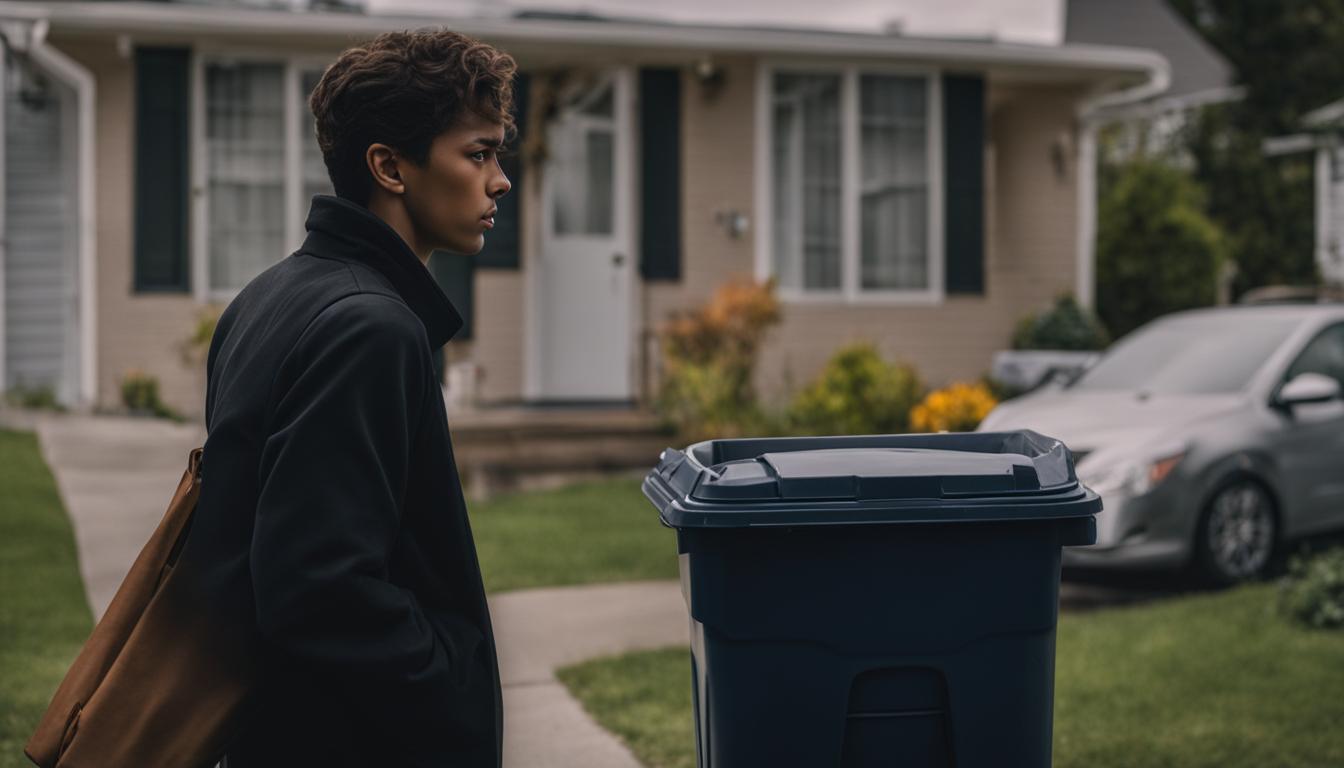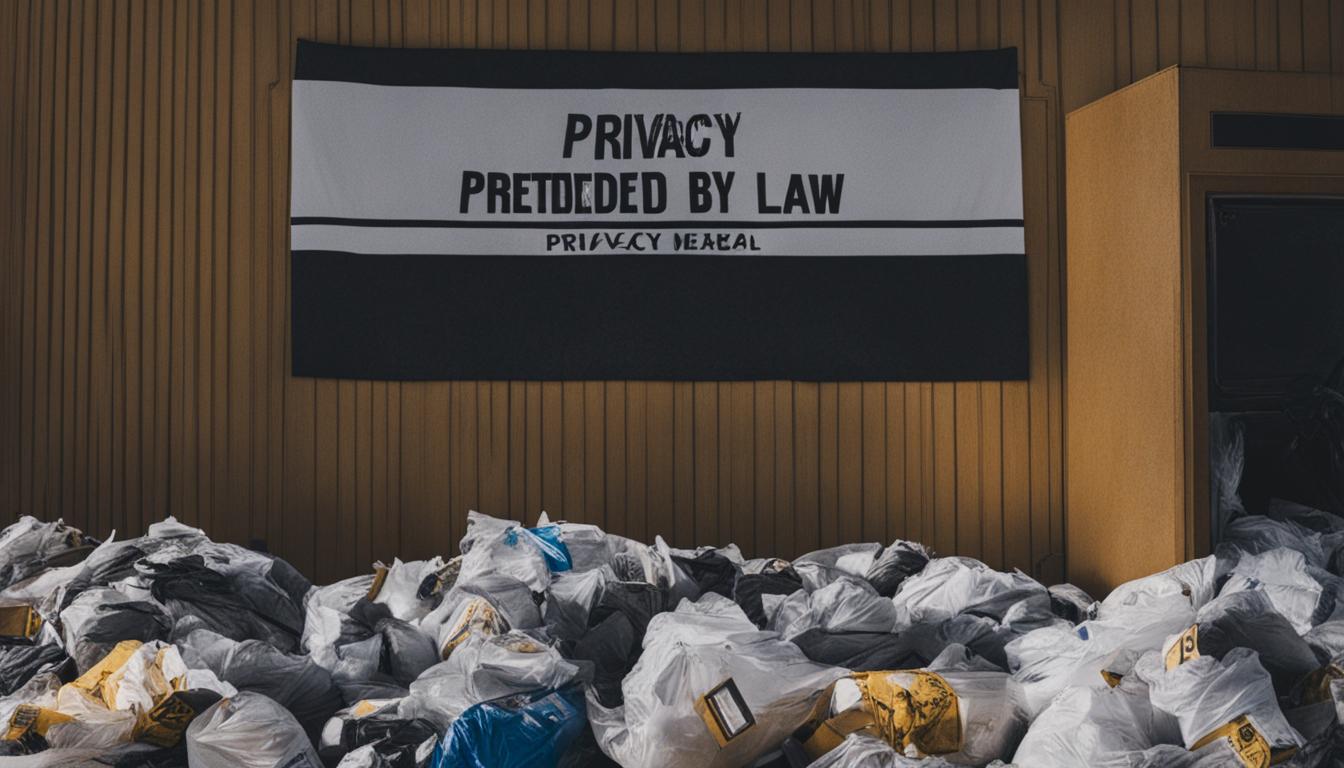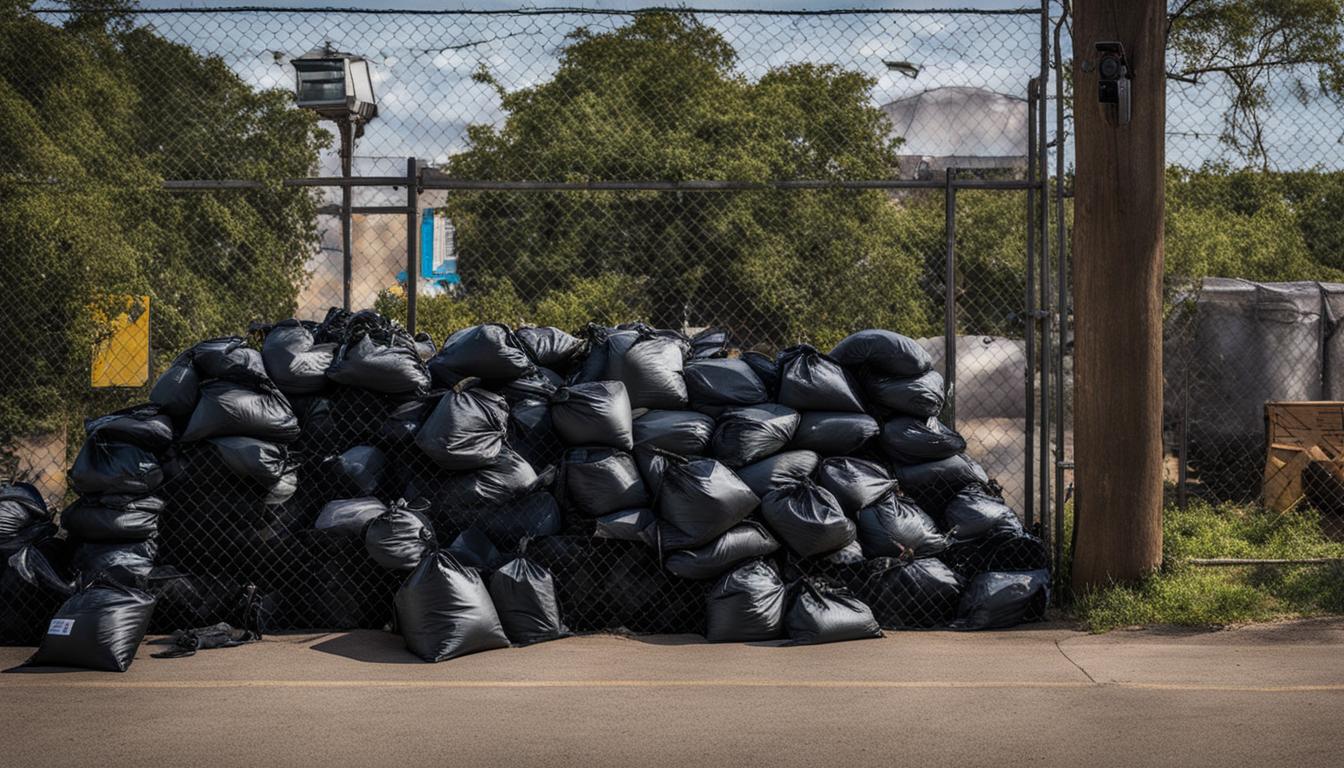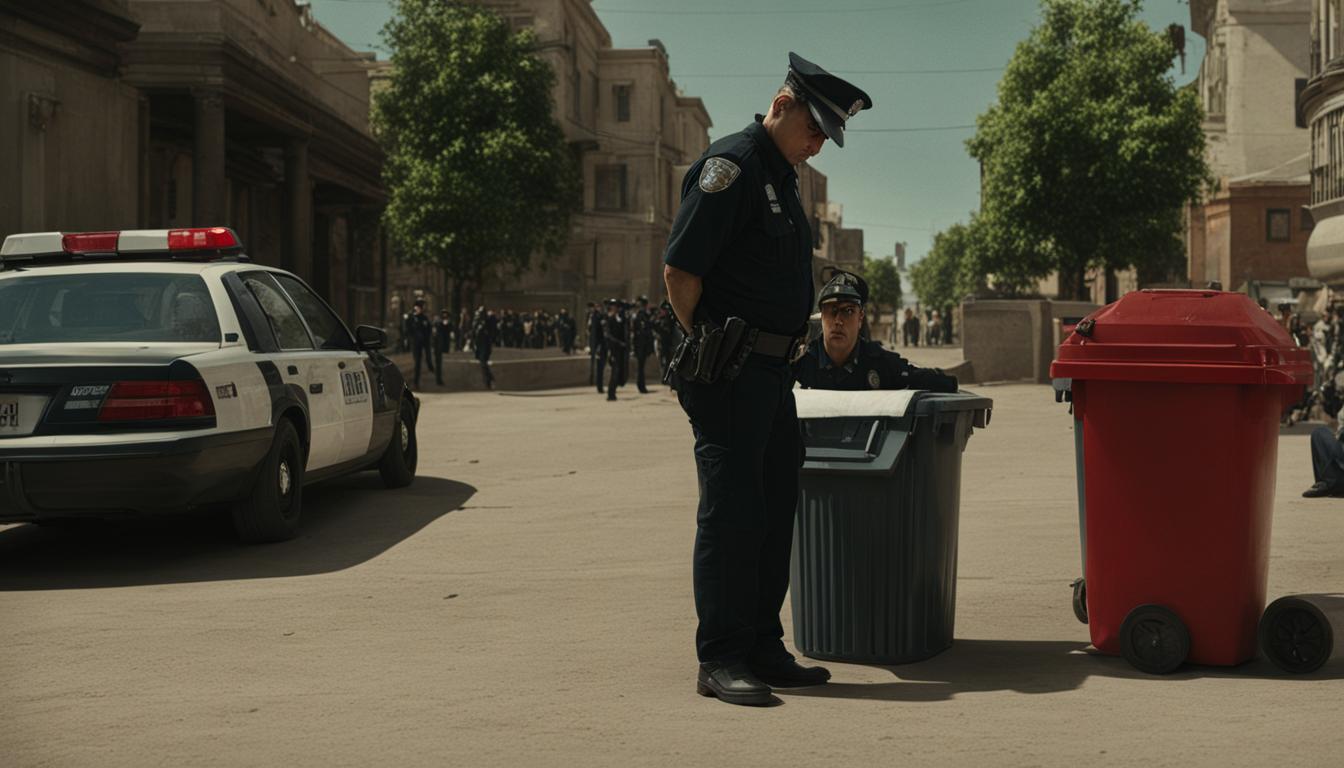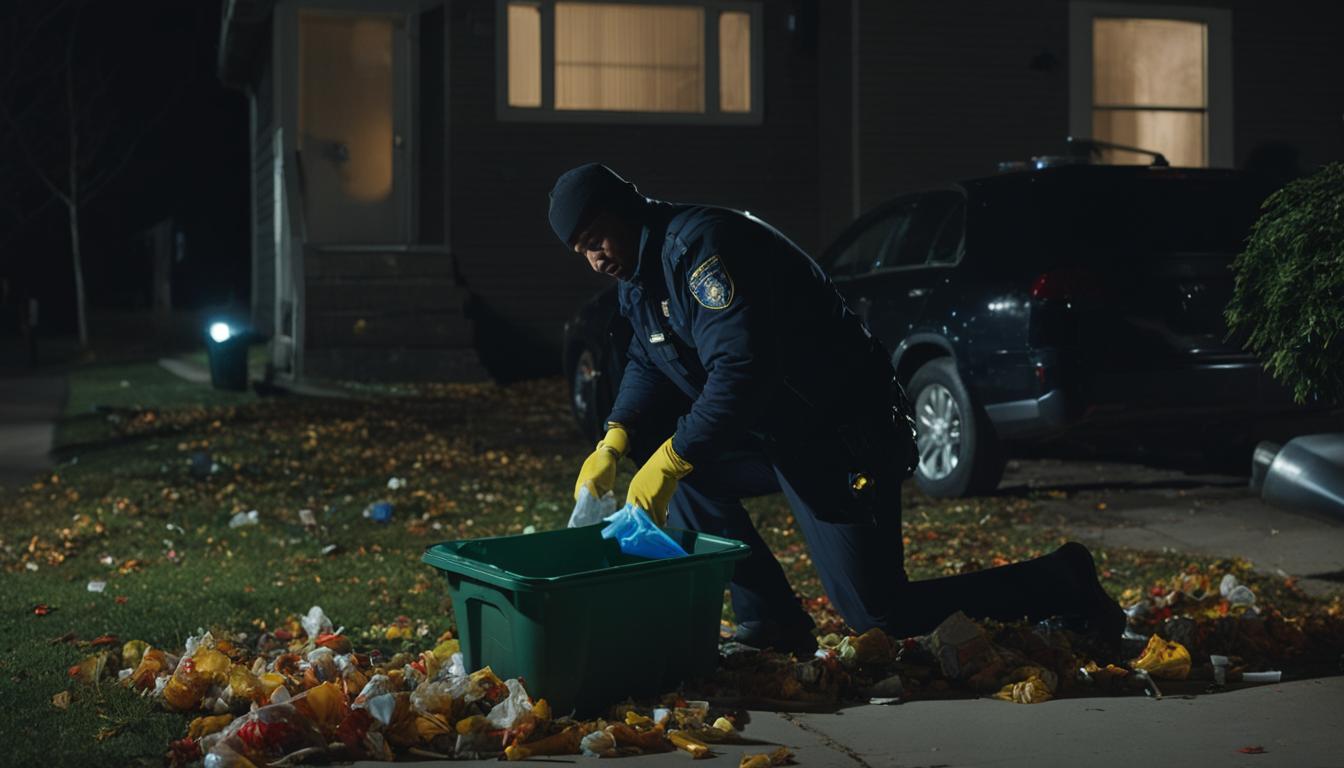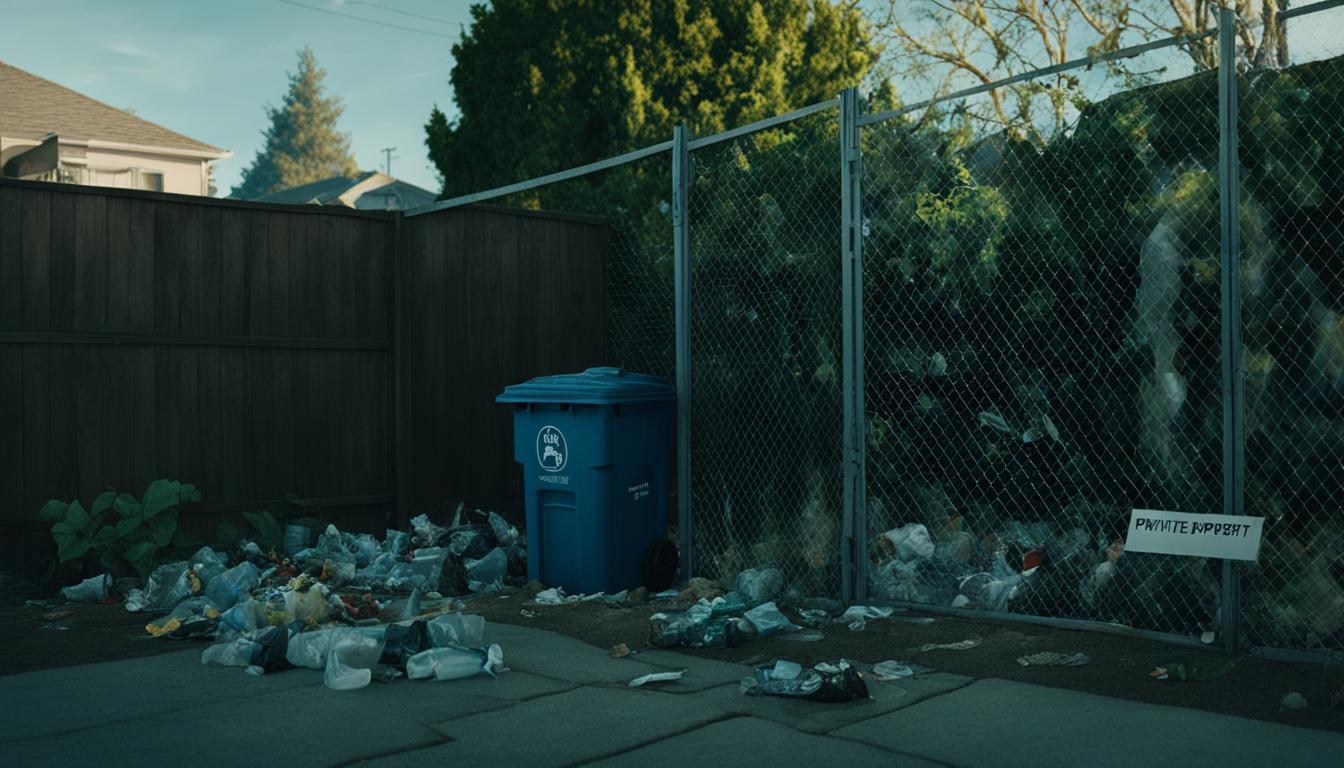Disclosure: This Post Contains Affiliate Links; We earn a commission on purchases.
When it comes to privacy laws and dumpster diving, many people in Kentucky may wonder if it is illegal for someone to go through their trash. Understanding the legalities surrounding trash snooping is important to protect your privacy rights and know your rights as a citizen. Let’s explore the laws and regulations that govern trash privacy in Kentucky.
Key Takeaways:
- Dumpster diving on public property is generally considered legal in Kentucky, as the person who discarded the trash has forfeited their ownership rights.
- However, dumpster diving on private property, enclosed areas, or designated garbage processing areas may be considered illegal.
- Using personal information obtained through dumpster diving for criminal purposes, such as identity theft, is illegal and can lead to criminal charges.
- It is crucial to check local laws and regulations regarding garbage ordinances to understand the specific rules in your area.
- Protecting against dumpster diving crimes can be done by shredding or destroying any private and confidential information and reporting any suspicious activity to the authorities.
The Legality of Dumpster Diving in Kentucky
In Kentucky, dumpster diving is generally legal as long as it does not conflict with any city or county ordinances or state laws. When trash is placed in a public area, such as a curb, for pickup, the person who discarded the trash has essentially forfeited their ownership rights. However, dumpster diving on private property or in enclosed areas may be considered trespassing or theft. It is important to be aware of any restrictions or off-limits areas designated by local authorities. While the act of dumpster diving itself may not be illegal, using personal information obtained through dumpster diving for criminal purposes, such as identity theft, is illegal and can result in criminal charges.
It’s crucial to understand that dumpster diving laws may vary from state to state and even within different local jurisdictions. In Kentucky, it’s advisable to check specific city or county regulations to ensure compliance with the law. Additionally, it’s important to exercise caution and respect others’ privacy when engaging in dumpster diving activities.
“Dumpster diving on private property or in enclosed areas may be considered trespassing or theft.”
Restrictions and Off-Limits Areas
While dumpster diving is generally legal in Kentucky, there may be certain restrictions on where you can dive. In some cases, local authorities may designate certain areas as off-limits for dumpster diving. These areas could include privately owned properties, enclosed dumpsters, or dumpsters on restricted premises. It is essential to respect these boundaries to avoid potential legal consequences.
By understanding and adhering to the relevant laws and regulations, individuals can engage in dumpster diving activities within the bounds of the law and enjoy the benefits it may bring.
| Fact | Information |
|---|---|
| Dumpster diving legality in Kentucky | Generally legal, but subject to city, county, and state ordinances |
| Ownership of discarded trash | Ownership rights are forfeited in public areas |
| Trespassing and theft | Dumpster diving on private property or in enclosed areas may be considered trespassing or theft |
| Using personal information obtained through dumpster diving | Using personal information for criminal purposes, such as identity theft, is illegal |
Reasons for Dumpster Diving
People engage in dumpster diving for various reasons. Here are some common motivations:
- Making extra money: Dumpster divers search for valuable items that can be sold, such as electronics, clothing, and collectibles.
- Finding food: In areas where food scarcity is an issue, dumpster diving can provide access to discarded but still edible food items.
- Electronic waste: Rapid depreciation and disposal of consumer electronics make dumpster diving a popular method for obtaining electronic waste, which can be recycled or repurposed.
- Salvaging materials: Dumpster divers often look for materials like metal, wood, and recyclable items such as empty cans and bottles that can be used for various purposes.
Dumpster diving serves not only as a way to obtain desired goods but also contributes to reducing waste and promoting sustainability.
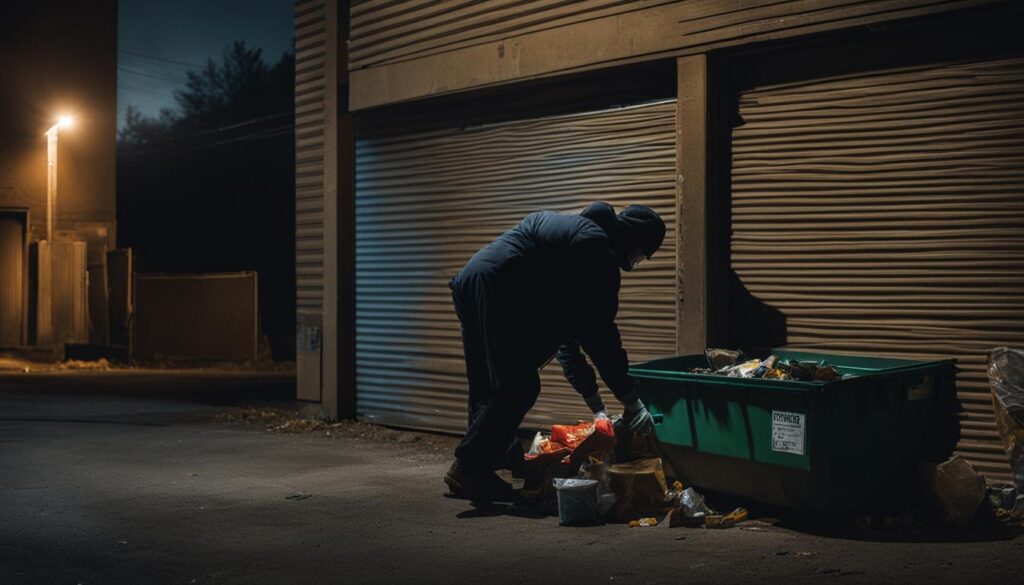
Dumpster Diving and the Law
Dumpster diving, the act of rummaging through trash to find discarded items, raises questions about its legality. In Kentucky, the legality of dumpster diving depends on various factors, including location and intent.
Trespassing and Ownership
When conducting dumpster diving, it is crucial to consider the property rights of others. Dumpster diving on private property without permission may be considered trespassing, which is illegal.
However, if trash is left in public areas such as sidewalks or curbs for pickup, it is typically perceived as abandoned and no longer owned by the individual who discarded it. In such cases, diving into these public trash bins is generally legal since ownership rights have been relinquished.
City and County Laws
While dumpster diving on public property is generally permitted, it is essential to recognize that some cities and counties may have specific laws prohibiting or regulating dumpster diving to prevent tampering with or damage to large trash containers.
It is advisable to check local ordinances or regulations regarding dumpster diving to ensure compliance with specific rules in your area.
Disorderly Conduct
In some instances, dumpster diving may be considered disorderly conduct if the activity is deemed inappropriate by law enforcement or someone complains about it. Laws surrounding disorderly conduct can vary, so it’s essential to be aware of your behavior and any potential complaints.
Dumpster Diving Rules for Recycling Bins
When it comes to recycling bins, the rules for dumpster diving may differ. Some recycling facilities prohibit scavenging due to concerns about contamination or interference with recycling processes. Thus, diving into recycling bins may be considered a violation of recycling regulations, and in some cases, theft of recyclable items. It is crucial to check local rules and respect recycling guidelines.
Protecting Against Dumpster Diving Crimes
To protect against potential dumpster diving crimes, it is recommended to take necessary precautions:
- Shred or destroy any private and confidential information before discarding it in the trash.
- Report any suspicious activity to local authorities.
- Be familiar with local laws and regulations to ensure compliance.
By being proactive and following these measures, individuals can mitigate the risks associated with dumpster diving and safeguard their privacy and security.
| Factors | Legal Status |
|---|---|
| Dumpster diving on private property without permission | Illegal (considered trespassing) |
| Dumpster diving on public property | Generally legal |
| Specific laws/regulations in cities/counties | May prohibit or regulate dumpster diving |
| Disorderly conduct | May apply if deemed inappropriate or complained about |
| Dumpster diving in recycling bins | Rules may vary; potential violation of recycling regulations |
Conclusion
In the state of Kentucky, it is generally legal for someone to go through your trash, provided it does not violate any city or county ordinances or state laws. However, there may be restrictions on dumpster diving in private property or specific designated areas. It is crucial to be aware of the laws and regulations in your area to avoid any potential legal issues.
While dumpster diving itself may not be illegal, it is important to note that using personal information obtained through dumpster diving for illegal purposes, such as identity theft, is against the law and can lead to criminal charges. It is always advisable to handle personal information with care and ensure proper disposal, such as shredding or destroying any confidential documents.
Trash privacy laws in Kentucky play a significant role in protecting individual privacy rights. However, it is essential to understand that these laws may vary, and it is necessary to stay informed about any updates or changes in legislation. By being knowledgeable about the legality of dumpster diving and exercising caution, individuals can navigate the boundaries between privacy and public access to discarded materials.
Source Links
- https://www.legalmatch.com/law-library/article/is-dumpster-diving-illegal.html
- https://www.local10.com/news/2015/01/06/is-it-legal-to-take-items-out-of-someones-trash/
- https://www.campbellcountyattorney.com/news/criminal-littering-1

Subscribe to Our Newsletter

